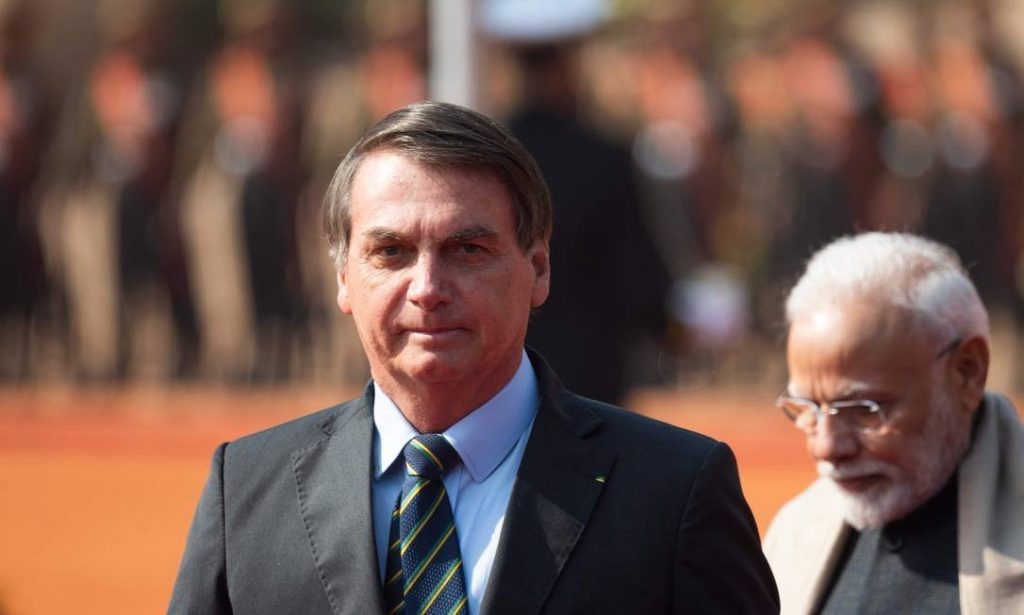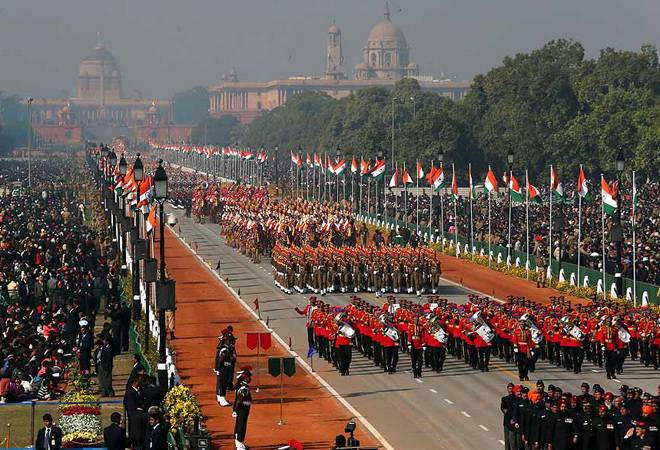RIO DE JANEIRO, BRAZIL – Jair Bolsonaro landed in India on Friday as the main guest for the Republic Day celebrations on Sunday 26th in New Delhi. Prime Minister Narendra Modi, who was in Brazil in November, welcoming the Brazilian far-right president to the Indian state’s most significant celebration, is viewed as a gesture of deference.
Both leaders of the two emerging powers seek to improve the strategic alliance in the face of the common challenge of economic reactivation and in the midst of the criticism they receive at home and abroad.

And they indeed took major steps forward: On Saturday, January 25th, they signed 15 agreements to cement cooperation in areas ranging from energy and trade and investment to cybersecurity and information technology after talks between the visiting Brazilian President and Prime Minister Narendra Modi.
The two countries also unveiled an action plan to further expand strategic ties between them.
Both Modi and Bolsonaro are criticized for their attacks on the media and for measures and speeches that undermine minorities in both countries, also bound together by their ethnic and social diversity.
Agriculture and the environment are minefields for both leaders. If Bolsonaro is criticized for his denial of the catastrophe of the Amazon fires, Modi’s passive stance towards pollution is denounced by activists who are backed by farmers in national protests.
“We face the same reproaches,” admitted the Brazilian ambassador to India, André Aranha Correa do Lago, to local television. He then redirected the answer to the scope of the meeting: “Our economies are so deeply and traditionally closed that by opening them, we find that there are other obstacles to be removed. This causes frustration abroad”.
With a notable trade nature, Bolsonaro visited India with seven ministers and a large delegation of businessmen who hope to sign more than 15 pacts with Indian governments and institutions, according to Correa do Lago, who also stated that “the two countries will sign a major agreement on accelerating and protecting investments”.
Pioneers in South-South cooperation and with similar agendas in the field of international partnership, India and Brazil elevated their bilateral relations to a strategic alliance in 2006, but the geographical distance and feeble social-cultural exchange between these two regional powers reduced the scope of the agreements.
To improve this aspect, Bolsonaro approved the granting of free visas for Indian tourists and businessmen at the last BRICS summit, in one of the few fruitful outcomes of the multilateral meeting held in November in Brasília. Modi reciprocated with this formal invitation, during which major contracts are expected, particularly in the fields of energy, agriculture, and defense.
Business forum and complaint at the WTO
After the Republic Day parade, Bolsonaro will meet with entrepreneurs from both countries at the India-Brazil Business Forum to boost these relations. The bilateral trade volume totaled US$8.2 (R$34) billion between 2018 and 2019.
Indian investments in Brazil are estimated at approximately US$6 billion, concentrated in the agricultural, pharmaceutical, energy, mining, engineering and technology sectors. Concurrently, Brazilian investments in India amount to some US$1 billion, focusing on the automotive, technology, mining and biofuels industries.

India’s energy concerns have directed its interest to Brazilian ethanol, following US sanctions against Iran and Venezuela, the fourth largest exporter of crude oil to India.
Amid the growing polarization between the United States, China, and Russia, Indo-Brazilian relations provide a window of opportunity to explore the future with no concerns about the superpowers. In 2016, Brazil publicly supported India’s inclusion as a member of the Nuclear Suppliers Group for the first time, making room for cooperation in this area.
Brazil has the third- and sixth-largest uranium and thorium reserves, respectively, in the world. The country also has fertile ground to benefit from technical cooperation in space matters, as India is becoming a platform for satellite production and launching, while Latin American countries traditionally rely on Chinese expertise.
There is also slippery ground to explore during the visit, such as the agricultural sector, basic to the economy of Brazil and India, the world’s first- and second-largest producers of sugarcane. Indian producers find it unacceptable that Brazil denounces India to the World Trade Organization for production and export subsidies.
Another factor may be the protests faced by Modi. Since the end of 2019, India’s large cities have been hosting major social demonstrations against the government, and the massive concentrations in New Delhi will be maintained during Bolsonaro’s visit to the capital.
The demonstrators denounce Modi’s Hindu nationalism, accusing him of discriminating against Indian Muslims; he is also criticized by the country’s Christian minority. Bolsonaro, on the other hand, represents the far-right allied to Brazilian evangelical radicalism and coincides with the Indian leader in displaying a populist discourse in his Tweets and administering his country through measures that marginalize minorities – the indigenous peoples, in Brazil’s case.
These similar political approaches have earned them electoral victories enabling them to pursue their conservative nationalist projects. Both seem to rely on political-ideological similarities to overcome a certain international isolation, which could also help cement economic relations between two powers perceived two decades ago as dominant in their regions and whose populations represent a quarter of the world’s population.

